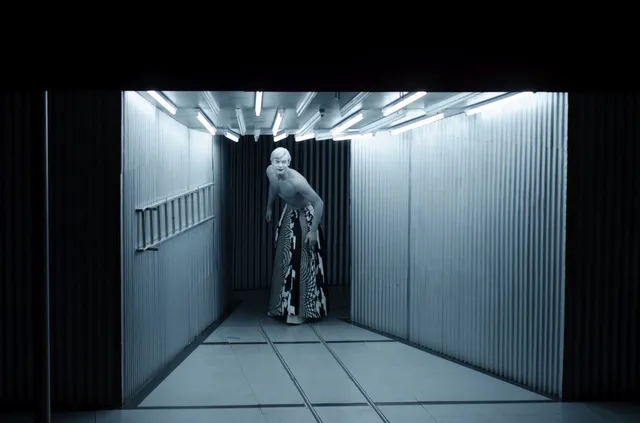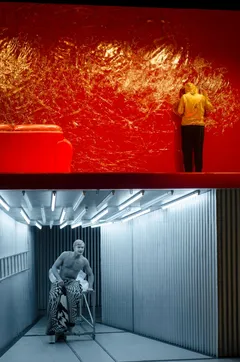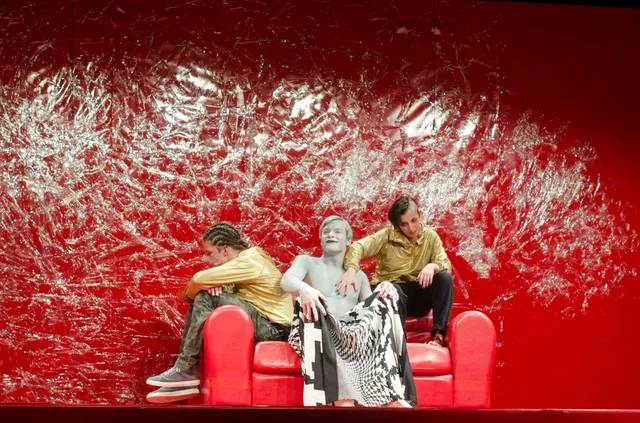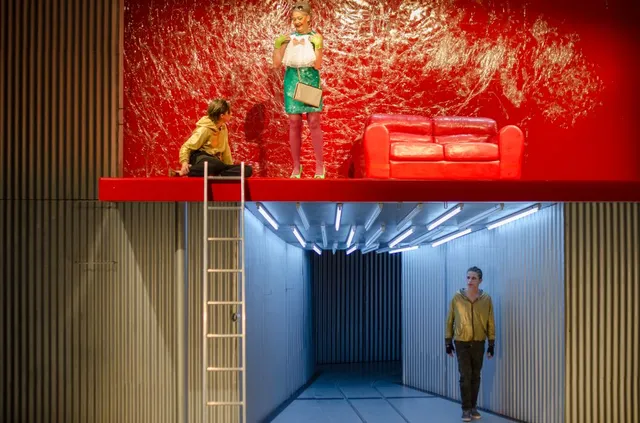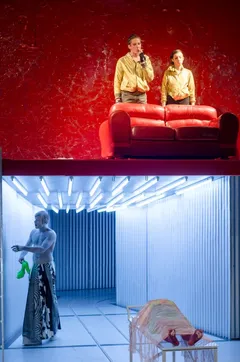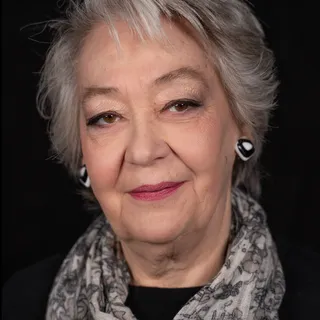Electra, directed by Bocsárdi László, it is an adaptation of Euripides's classic tragedy which includes also fragments from Aeschylus' Agamemnon. The original writing style was kept, and fragments and significant topics of the classical tragedy, such as revenge, duty awareness or passion were maintained. The performance evokes the obsessive determination of Electra to revenge her father.
In the story of Orestes and Electra – around whom the entire action takes place – the last three generations were followed by a more hideous curse. Pelops, Atreus and Agamemnon, the ascending brothers from the paternal line, embody the reign and the masculine principle. And that is exactly what is causing their perish: they do not take into account the position of the woman, the irrationality, nor the sanctity of birth. They sacrifice one by one their children on the altar of a cause they believe it is holy. They have become blind to what is fragile, like a neglected child who claims his right to existance and becomes awful, clapping his feet and asking for blood. In the performance, The Old Man is the one who embodies this invisible energy and without simplifying it, he gives it consistency through the miracle of theater. Therefore he is Artemis, the virgin goddess, but also Iphigenia, the sacrificed child, and Dionysus, the god of tragedy. He's the curse itself, which means he is the soul of the tragedy.
